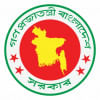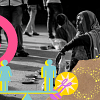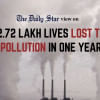Development NGOs: Arm of the state or part of civil society?

Clearly, NGOs are seen by global observers of development and change as a major contributor to the "miracle" of development in Bangladesh. Strategically and structurally, this reputation is two-edged, especially with regards to rights and entitlements, access to support services, and the meaning of citizenship. The reliance upon donors in the early decades after liberation has also been a crucial part of the equation, as they reacted to a "weak" state by funding NGOs and arguably reinforcing state weakness in the process, fracturing or bypassing the contract between state and society, and perhaps unwittingly undermining aspects of democracy and governance.
This potential judgement needs to be tested against ideas about civil society. The term "NGO" can embrace a wide range of organisations. Just because they are non-government, does that necessarily allocate them to "civil society"? If we define institutions of civil society as a moderating force on absolute state power, providing important democratic functions between periodic elections, then many NGOs would not qualify for "civil society" inclusion. Many charities, philanthropic foundations, and service delivery organisations are then better understood as not-for-profit rather than not-for-government. And in that sense, they are private sector institutions, only distinguished from, say, banks by having social objectives rather than for-profit ones. Of course, they may exist as living embodiments of state critique, as for example food banks in the UK. Their "doing" rather than "saying" implies criticism of state or government failure. In Bangladesh, it is common to use the term "development NGO" to describe them.
If only real practice was so categorically simple! NGOs have their own histories and over time can emit mission creep or goal displacement. Might we say that BRAC used to have a more mixed mission than it does now, that once it was more in civil society than it is now?
Some NGOs are created for mixed purposes: partly not-for-profit services essentially in the private sector; partly recycling profit earnings for social development (such as from micro-banking); partly therefore for conscientisation, awareness raising, and functional literacy to enable clients to participate democratically or to compete more strongly and effectively in markets, or to access rights and entitlements in relation to the state; partly to advocate and lobby on behalf of clients, whether in relation to the state or in the domain of public opinion. In other words, as "development" NGOs with plural missions, they can be half in civil society and half out of it as a reflection of their practice, if not of their rhetoric.
This complexity makes generalised conclusions and judgements difficult. How was Proshika, for example, to be understood with its "walking on two legs" mission: fighting for rights and inclusion on the one hand, while filling bellies through income-generating services on the other. Or take legal rights organisations, such as BLAST, employing lawyers to work with cases or clients. How are they to be classified? Can their individual case work nevertheless set wider precedents in law and thereby establish principles regarding the state? Other NGOs have shunned micro-banking and focused only upon "social development," like Nijera Kori or GSS, with a mission of empowerment in the interstices between the mode of production and the state (for example, acquisition of khas land). But if, like BRAC, they are providing Non-Formal Primary Education (NFPE) as a substitute for state provision of inclusive primary education, then does the activity of provision lie outside civil society (as a de facto franchised service) while the outcome eventually lies within civil society if, for example, empowerment of youth has been enhanced? An overall conclusion from these classificatory dilemmas (and there are many further examples) is the danger of simply eliding the concept of NGO with the concept of civil society.
This leads us to the issue of independence. Just because an organisation is an NGO, should it be independent of the state? To be "non" is not the same as being "anti," "opposed to," or "challenging" the state. To be "non" is simply not being bound by the same statutory responsibilities or legal constraints as for apparatuses of the state, wherein rights and entitlements of citizens truly exist. That is the difference between citizens and clients: the former refers to rights-based inclusion; the latter to voluntary inclusion by the NGO as patron to its clients, from which either party can withdraw once contracts are fulfilled. While the state can franchise out its functions via NGOs, specifying conditions for client targeting during contract periods, with such franchising there are no generic, long-term comprehensive guarantees, thus no universal rights. This is how we can arrive at States Without Citizens: The Problem of the Franchise State (Wood, 1994). Absence of rights-based services are compounded if NGOs perform these outsourced functions using only philanthropic (donor or domestic) or not-for-profit funding, with state social policy becoming reliant upon such voluntarism as is widespread in the UK, food banks being only one example. Does the state in Bangladesh rely upon BRAC in such a way? Moreover, has it relied upon Grameen Bank in such a way? And then we come to the power of the state to regulate NGOs with respect to funding and practice. Bangladesh has its NGO Affairs Bureau, the UK has its Charity Commission. Funds raised from outside the state may have sovereignty restrictions (as in Modi's India) and anyway must be used for publicly stated and approved purposes as a condition of registration. So, voluntarism is regulated by the state. In this sense, no NGO is completely independent of the state.
Turning away from "non"-government organisations towards more positively labelled institutions of civil society, then independence is a necessary and not just preferred status—for example, Transparency International Bangladesh (TIB). In the "natural" state schema in Violence and Social Orders (North, Wallis and Weingast 2009), Bangladesh can be classified as a limited access state somewhere along a "basic, fragile and mature" natural state spectrum. It is dominated by personality rather than social persona (that is, akin to non-dynastic political class). Critical institutions outside the state do not enjoy socially embedded permanency and security. And entitlements are under-codified, and more arbitrary in practice. In a Gramscian sense, many are front organisations incorporated into the state's hegemonic purpose but disguised as separate: student and youth organisations in Bangladesh come to mind; trade unions, too. Other institutions like universities and parts of the media are penetrated and subtly censored. Many think tanks are aligned, operating within a degree of censorship. Legal institutions are contaminated. And political parties have limited freedoms to pursue critique without the charge of disloyalty to the nation and worse. Journalism (print or screen) has to navigate a fine line to avoid being harassed informally, or openly through the courts.
With such conditions, observers refer to the 'shrinking space' for civil society. Perhaps better to think in terms of dialogic space which refers to the unstable boundary between negotiable and non-negotiable ends. This more fluid concept, sustained across large amorphous kin groups which straddle formal divisions, allows for some room for manoeuvre to debate and pursue policy, to permit an element of agenda setting, to challenge hegemony, to be awkward and to protest within negotiated limits. Considering this dialogic space, is there evidence of some state listening, some innovative thinking (e.g Whiteboard, itself close to power), and some local level re-interpretation of central diktats through local state-civil society and NGO interface, at one remove from the heat of central politics? This 'unstable' boundary is the key concept here, vital for example to TIB and the non-incorporated media. And at the same time if the state inches more towards a regime of social persona (and maybe there is some emerging evidence for this shift?) then some maturity in the natural state can be visible.
Any such move towards social persona away from personality is driven, inexorably, by the continuous political requirement to reconcile upwardly mobile economic status with political inclusion in widening elite coalitions. Without this process, there can be no political order since any regime characterised strongly by personality is ultimately threatened. But for that process to occur, good people still have to take risks, using their social persona identity to defend themselves. Just don't expect too much from development NGOs in shifting the needle on the dial. For many of them nowadays, their historical task has narrowed to a voluntaristic, not-for-profit focus upon current livelihoods for those lucky to be selected as clients rather than on wider strategic activism for accountable politics via social mobilisation, openly confronting the state and its rent-seekers. Ambitions for such NGOs are more local, micro-level, service-driven, and modest in significance. To survive is to compromise. On the fringes of civil society rather than central to it. This could change again if the character of the state changes.
Dr Geof Wood is a development anthropologist and author of several books and numerous journal articles, with a regional focus on South Asia. He is also emeritus professor of international development at the University of Bath.
Views expressed in this article are the author's own.
Follow The Daily Star Opinion on Facebook for the latest opinions, commentaries and analyses by experts and professionals. To contribute your article or letter to The Daily Star Opinion, see our guidelines for submission.

 For all latest news, follow The Daily Star's Google News channel.
For all latest news, follow The Daily Star's Google News channel. 











Comments